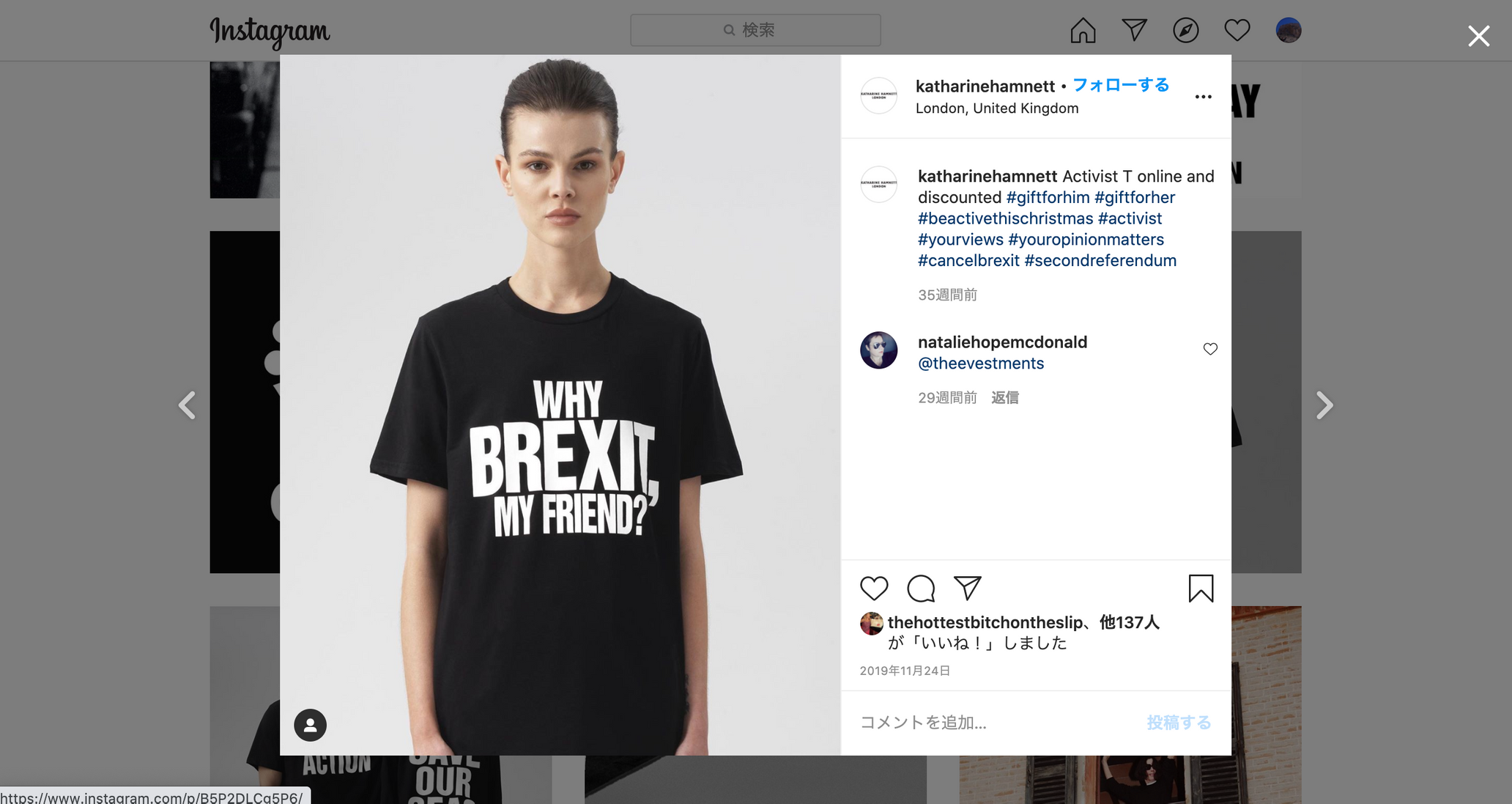The problem of Brexit is imminent. Although it was hidden due to the influence of Covid-19, it is approaching momentarily the end of the transition period on December. The UK decided to Brexit by a referendum on June 23th, 2016, three years and seven months later on January 31st, 2020, after a severe negotiation with the EU and fierce debate in the UK, finally withdrawal is realized and start the transition period.
According to several reports from British media, the secessionists on Brexit day seemed to have entered the new year like a grand festival. Leaving Means Leave, a secessionist civic organization, had a huge Union Jack showcased in the square in front of Westminster Palace in London, and a video played on a big screen which is summarizing the history of 47 years from the EU’s predecessor to joining the European Community. While the secessionists rejoice in the long-awaited new era, supportive media for the remnants criticize the EU secession commemorative goods sold by the Conservative Party as “ugly” and “don’t spend money on junk.”
A week before Brexit, at a conference of the roots of the remnants Grassroots for Europe said “The remnants’ momentum hasn’t been lost.” When Dominic Grieve, former attorney general spoke, “Public opinion will one day lean towards the values of open cooperation, democracy and the rule of law that Britain and Europe have maintained”, the whole audience gave him a standing ovation. Nevertheless, the situation has been settled down by Brexit, “how to steer the economy” will be the focus of discussion from now on.
Fashion companies likely to be affected by trade issues
Brexit’s changes in life begin with political power, citizenship, immigration, and economy, and the fashion industry has a lot to do with trade and labor issues. A lot of time will be spent negotiating a free trade agreement (FTA) between the UK and the EU. Many British fashion brands are willing to remain because of trade issues. The dependence of British fashion companies on the EU is clear from the fact that the EU accounts for 80% of clothing export destinations. Although the UK wants to maintain profits such as zero tariffs even after leaving the EU, the EU is more cautious like “don’t let you take advantage.”
In the future, the UK fears that customs inspection and quarantine procedures will be required for trade, and it will affect prices such as management costs and additional tariffs on raw materials and components. Since most of the clothing and accessories are mainly produced in EU countries and China, the cost of customs clearance at the time of import and domestic shipments will overlap, and a rise in production costs is inevitable. In particular, the declaration of origin required for customs clearance may be difficult to prove for products such as clothing that spans multiple supply chains. In Norway, for example, certain commodity suppliers who are not Customs Unions may pay tariffs instead of passing the strict provisions that establish the economic origin of the commodity.
The movement of non-sold items abroad should also be complicated. For example, if you send a sample of clothing from the UK to the EU for shooting or showroom, it is not just a parcel, it will cost more and take time more. Including Stella McCartney and Alexander McQueen that have been holding shows in Paris, it is inevitable that showrooms operated by other companies will have complicated intercontinental exchanges. Exchange rate fluctuations immediately after Brexit, “due to the weak pound, which has brought a good account balance” said Andrew Roberts, vice president of Burberry, told the French web media Fashion Network. However, the number of tourists will decrease because of the impact by Covid-19, this benefit can be said to be temporary.
Immigration regulation reveals labor issues
Brexit places restrictions on the freedom of the British people to move abroad and to work, increasing the hurdles for foreigners to work in Britain. Currently, the UK government is calling on an estimated 3.5 million people from EU countries to continue to register for work rights by at least the end of December. From next year, a new immigration system will be placed to limit the inflow of unskilled workers while accepting highly skilled workers. However, the British Fashion Council has been worry to unable to increase its production capacity due to the shortage of fashion workers. According to a survey conducted by a marketing company Fashion Roundtable on 50 British manufacturing companies, 80% of the posts are vacant by immigration regulations, and more than three-quarters of them can be filled in the country. It shows us that there were no staff with sufficient skills. Companies involved in the manufacturing industry and the British Fashion Council have announced their willingness to cooperate with the government in improving their domestic workforce, yet, their preparations remain uncertain. After Brexit, it might be lost that cultural properties such as traditional crafts related to luxury brands. It is unclear whether or not students will be included in the tightening of immigration regulations, it might give the impact on the prestigious school Central Saint Martins, which has discharged excellent human resources.
In early June, the UK had a video conference with EU Council Chairman Charles Michel, but no progress was made in trade negotiations. At this point, the UK has made a decision to streamline import procedures from the EU for 6 months starting January 1st, 2021, following the end of the transition period. The customs clearance procedure for imports can be delayed for up to 6 months, and customs duties can be carried over until the time of customs declaration. After July, customs clearance procedures similar to imports from non-EU countries are expected to be required. Is there enough power in the UK to abandon the system that lasted 47 years and accurately steer? How will the unique British culture, such as conceptual manufacturing and energetic creation of young people, be passed on to future generations?


